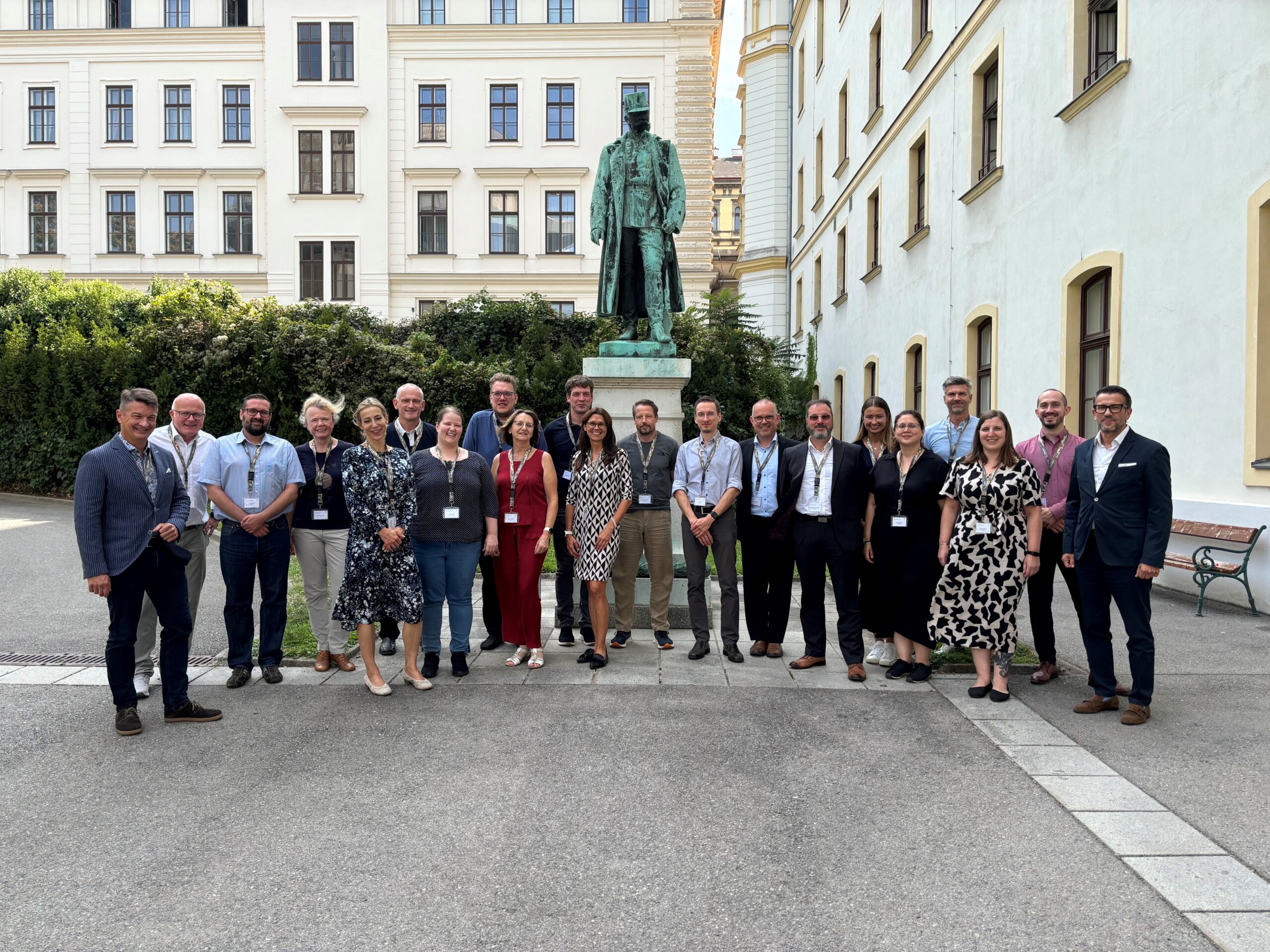
This year's meeting of the CAT User Group at the Austrian Armed Forces took place from September 4th to 6th, 2024 at the State Defense Academy in Vienna. The three-day symposium offered valuable insights into the development and use of CAT 5, a software for computer-assisted testing. Together with IT specialists from CONET, representatives from the CAT User Group – consisting of the Federal Employment Agency, the German Bundeswehr, the North Rhine-Westphalia Police, the Swiss Army and the Austrian Armed Forces – came together for a professional exchange.
CAT 5 – A solution that sets standards
The CAT 5 software plays a central role in psychological diagnostics and personnel selection because it enables computer-assisted testing and dynamic evaluations. The public institutions of the CAT User Group use the system to make their aptitude tests more efficient and dynamic. The ability to evaluate test data in real time and the high flexibility of the software in various areas of application have made CAT an indispensable tool. Above all, the continuous adaptation and further development to the needs of the user groups is what makes the system so successful – and this was exactly the focus of this year's event in Vienna.
Participants of the CAT User Group at this year's meeting in Vienna
Day 1: Insights and new impulses
The CAT User Group started on Wednesday with a festive champagne reception, where the participants were able to exchange ideas in a relaxed atmosphere. Brigadier Mag. Christian Langer, Head of the Army Psychological Service of the Austrian Armed Forces, officially welcomed the guests and gave an insight into the importance of psychological diagnostics in the military.
Lectures followed, which provided a lively topic of discussion. Alina Bugelnig (Austrian Federal Armed Forces) presented her research on the Flynn effect, which describes a constant increase in intelligence test scores across generations. In addition, Dr. Alexander Birner (Austrian Armed Forces) examined the influence of FFP2 masks on test performance – a topic that is very relevant at the moment. The lectures showed how diverse CAT is used in practice and gave the participants new food for thought for their own applications.
In the afternoon, Christian Becker (University of Vienna) presented current research projects, including the development of a new matrix test and a forced-choice personality questionnaire. Dr. Erik Sengewald followed with workshop and research reports on progress in test development within the Federal Employment Agency. Finally, the first day was concluded by Dr. Kerstin Lenhardt (VBS Switzerland) with a lecture on test revision of fitness for duty tests.
Day 2: Challenges and insights
On the second day, the focus was on the implementation of CAT in various institutions. Arne Zachej (North Rhine-Westphalia Police) impressively described the challenges of introducing CAT. The use of the new software proved to be a complex process, especially in aptitude diagnostics. Nevertheless, the North Rhine-Westphalia police were able to successfully carry out their first test campaign with CAT in spring 2023.
A highlight of the day was Assoz's lecture. Prof. Mag. Dr. Jakob Pietschnig (University of Vienna), who presented the latest developments in intelligence research. He discussed the impact these findings have on personnel selection and answered many interested questions from the audience.
The afternoon offered a very special experience: the participants got an exclusive insight into the work of a logistics center for the Austrian Armed Forces. These practical impressions, combined with a tour of the Sigmund Freud Museum, rounded off the day and offered both professional and cultural inspiration.
Day 3: Looking into the future of CAT
On the last day of the event, the focus was on the current and future developments of CAT. Michael Schneider (CONET) and Bettina Wölm (German Bundeswehr) gave an exciting outlook on upcoming innovations, including compensation for disadvantages for test subjects with disabilities. This new function, which was first developed for the Bundeswehr, will play an important role in the recruitment of employees with disabilities in the future.
Dr. Erik Sengewald (Federal Employment Agency) also presented the development status of an IT tool for the dynamic evaluation of test results with R. This function was examined by the Federal Employment Agency using a fictitious test person and impressed the participants with its flexibility and efficiency.
The possibility of archiving test data on an external server by using a REST interface to replace the current process was also discussed by Bettina Wölm and Michael Schneider. Finally, a discussion session took place in which the future needs of the CAT User Group were discussed, which will directly influence the further development of CAT.
Another highlight was the visit by representatives of the Austrian Federal Railways (ÖBB), who, on the recommendation of the Austrian Armed Forces, found out about the possible uses of CAT.
The meeting once again showed how important it is to discuss experiences and challenges in personal exchange. The participants were enthusiastic about the new functions and findings and are looking forward to the future development of the system.

Source: https://www.conet.de/blog/cat-user-group-treffen-2024/


